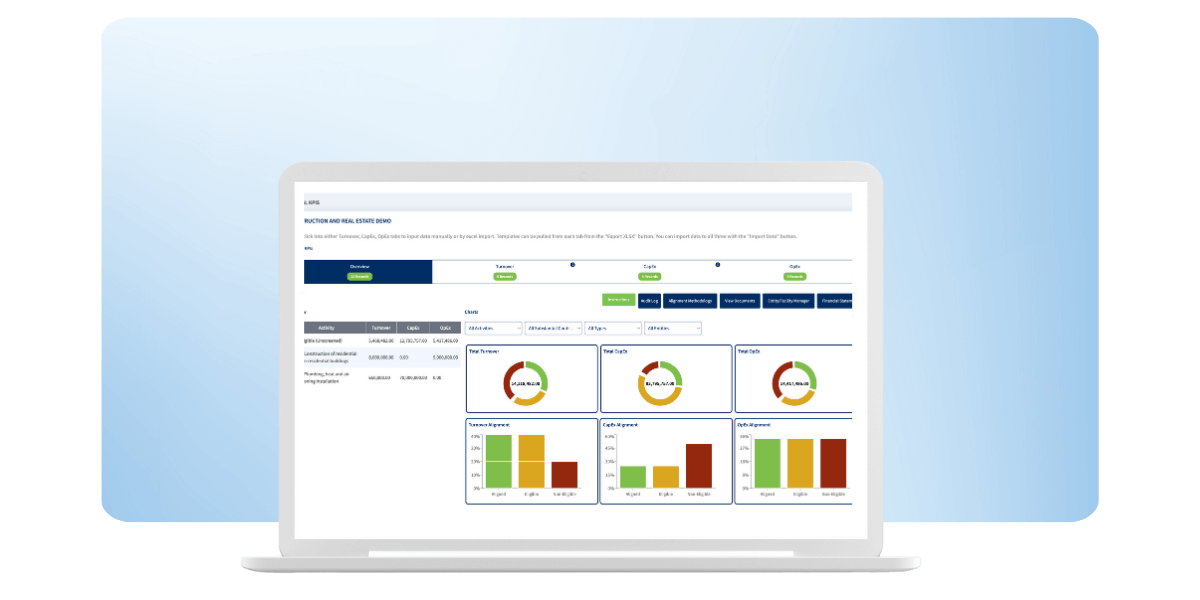ESG Playbook – A complete solution
Why Report?
What are the benefits of sustainability reporting?
Sustainability reporting is essential for businesses looking to thrive in today’s environmentally conscious world.
By integrating Sustainability factors into business strategies, organizations can attract more investors, comply with regulations, improve their risk management, and build a positive brand reputation.
ESG Playbook offers a comprehensive solution that simplifies and streamlines the sustainability reporting process, enabling businesses to track progress, meet regulatory requirements, and gain operational efficiencies. With the right tools, you can optimize your reporting, achieve long-term financial benefits, and foster trust among stakeholders.
Key Benefits
Strengthened Long-Term Financial Performance
Companies that engage in sustainability reporting often see improved financial metrics like Return on Assets (ROA) and Return on Equity (ROE), driving long-term profitability.
Reliable Financial Benefits in Regulated Markets
Businesses in regions with mandatory disclosure requirements (e.g., ISSB, CSRD) tend to experience more consistent financial advantages, while voluntary markets may yield mixed results.
Enhanced Reputation & Stakeholder Trust
Transparent sustainability reporting builds brand credibility and fosters trust among investors, customers, and regulators.
Greater Access to Capital & Investment
Investors prioritize companies with strong sustainability disclosures, ensuring better access to funding and financial resilience.
Reduced Risk & Improved Compliance
Sustainability reporting enhances regulatory compliance, minimizes legal risks, and strengthens overall risk management.
Increased Operational Efficiency & Cost Savings
Optimized resource usage and improved efficiency contribute to a stronger bottom line and long-term business success.
One Platform
Comprehensive Sustainability Reporting. Simplified for you.




